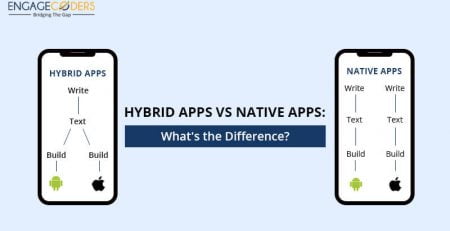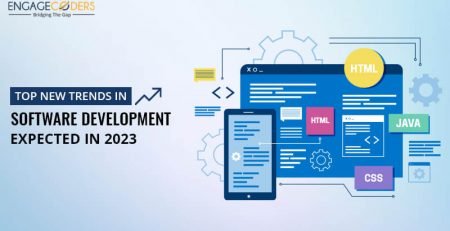How Much Does it Cost to Hire a PHP Developer?
After the COVID-19 pandemic, the global landscape of work and employment has undergone a remarkable transformation. The lasting impact of the COVID-19 pandemic forced a sudden shift toward remote work. It’s notable that this change has evolved far more than anyone expected. Contrary to initial assumptions that remote work was a temporary response to the crisis, now it has established itself as the new standard in the world of employment.
In this new era of work, hiring dynamics have been redefined with remote work culture which is preferred by almost everyone. The demand for skilled individuals including PHP developers, is constantly increasing as organizations embrace remote talent worldwide. The benefits of remote work, such as increased employee flexibility and access to a diverse talent pool beyond geographic boundaries, have become undeniable.
However, it is essential to recognize that in this new world of work, only a few people are eager to return to the traditional office setting. Instead, remote work has become an integral and permanent part of our professional lives. Moreover, the hiring cost of php developer also depends upon the following key skill sets:
- Comprehensive and in-depth knowledge of PHP
- Hand-on experience of working on popular frameworks such as CakePHP, Laravel, and Symfony
- Good front-end skills in HTML and CSS
- Experienced in working on SQL/MySQL databases
- Good understanding of JavaScript concepts
- Well-aware of flow and working on control systems like SVG/Git
- Has experience in working on Object-Oriented Programming concepts
- Good with deadlines and milestones
- Has strong communication skills
As we explore the cost of hiring a PHP developer in this changed landscape, we will consider the following models that now govern this dynamic and evolving employment sector.
Unleash The Power of Your Project With Experienced PHP Developers
For a reliable and advanced website, application, or CMS, hire the leading PHP developers from Engage Coders. Bring the best for your project with Engage Coder, a reputable name in the industry.
Hiring Models for PHP Developer
Part-Time or Hourly Hiring Model:
This model is cost -effective and economical suited for micro or small business those who are on early stages. As they are short on money and spend every single penny wisely. They prefer to pay as they go.
The part-time and hourly model of hiring PHP developers offers flexibility to both employers and developers. This model allows businesses to hire developers for specific projects or tasks, and they can work remotely or on-site, depending on the agreement or contract.
Pros
- Cost-Effective: You pay for the actual hours worked, reducing overhead costs.
- Flexibility: Easily scale up or down based on project needs.
Cons
- On-Demand Availability: Part-time developers may not always be readily available during critical phases.
- Communication Challenges: Communication with Remote/part-time developers is difficult because you need to be available as per their schedule as their roster is fully packed with multiple clients.
Full-Time Hiring Model:
This model is best suitable for mid-size businesses or startups having set goals to achieve in 3 to 5 years. As they need dedicated people on on-board to meet their deadlines. Hiring a full-time PHP developer in such organizations is a common practice as they are financially stable and focused towards their goals. Full-time PHP developers are more aligned with your goals as their focus is not diverted in multiple projects.
Pros
- Dedicated Commitment: Full-time developers are fully committed to your projects.
- Team Integration: Easier collaboration with in-house teams for seamless project management.
- Long-Term Relationships: Build strong working relationships for ongoing projects.
Cons
- Higher Fixed Costs: Full-time employees come with fixed salaries and benefits. It includes health insurance, paid time off, life insurance, parental leave, commuting/travel assistance, and gym/wellness benefits.
- Limited Flexibility: Scaling up or down may require additional recruitment or layoffs.
- Resource Management: Managing workloads during downtimes can be a challenge.
Outsourcing a Dedicated PHP Web Development Company:
Outsourcing a dedicated PHP web development company is suitable for businesses that are already fully engaged in their current operations and cannot allocate additional time to manage development tasks either on-site or off-site. These businesses require a partner who can execute tasks according to their instructions, with the work carried out by various developers being supervised or audited by a designated individual or team.
Outsourcing to a dedicated PHP web development company is a strategic approach. These companies specialize in providing expert PHP developers for your project. They have knowledge, experience, and a dedicated team, including:
- Project managers
- PHP developers
- Designers
- Testers
Pros
- Access to Expertise: Tap into a pool of skilled PHP developers with specialized knowledge.
- Cost-Efficiency: Save on infrastructure and recruitment costs.
- Scalability: Easily adjust resources based on project requirements.
- Focus on Core Competencies: Allows your business to focus on core functions.
Cons
- Potential Communication Challenges: Effective communication is crucial for successful outsourcing.
- Quality Control: Maintaining quality standards may require close oversight.
- Data Security: Ensure robust data security measures when outsourcing sensitive projects.
Conclusion:
The hiring model of PHP developers you choose is determined by your individual project needs, budget, and long-term goals. When making your decision, consider project scope, timeframe, and the level of control you require over the development process. Each hiring model has its own set of benefits and drawbacks, allowing you to determine the greatest fit for your organization’s specific needs.
Being an organization in this ecosystem, we have to adapt ourselves with the emerging requirements of this remote work culture/ environment. At Engage Coders, we ensure that you can choose any of the models mentioned above.
Engage Coders has made its name in the development industry over the period of last 8 years and become the most trusted PHP Development Company in the USA. Our PHP developers are ready to take any challenge in delivering a unique web experience for your customers.
So what are you waiting for? Join hands with Engage Coder and tell us what your requirements are, and we will make it happen for you.







